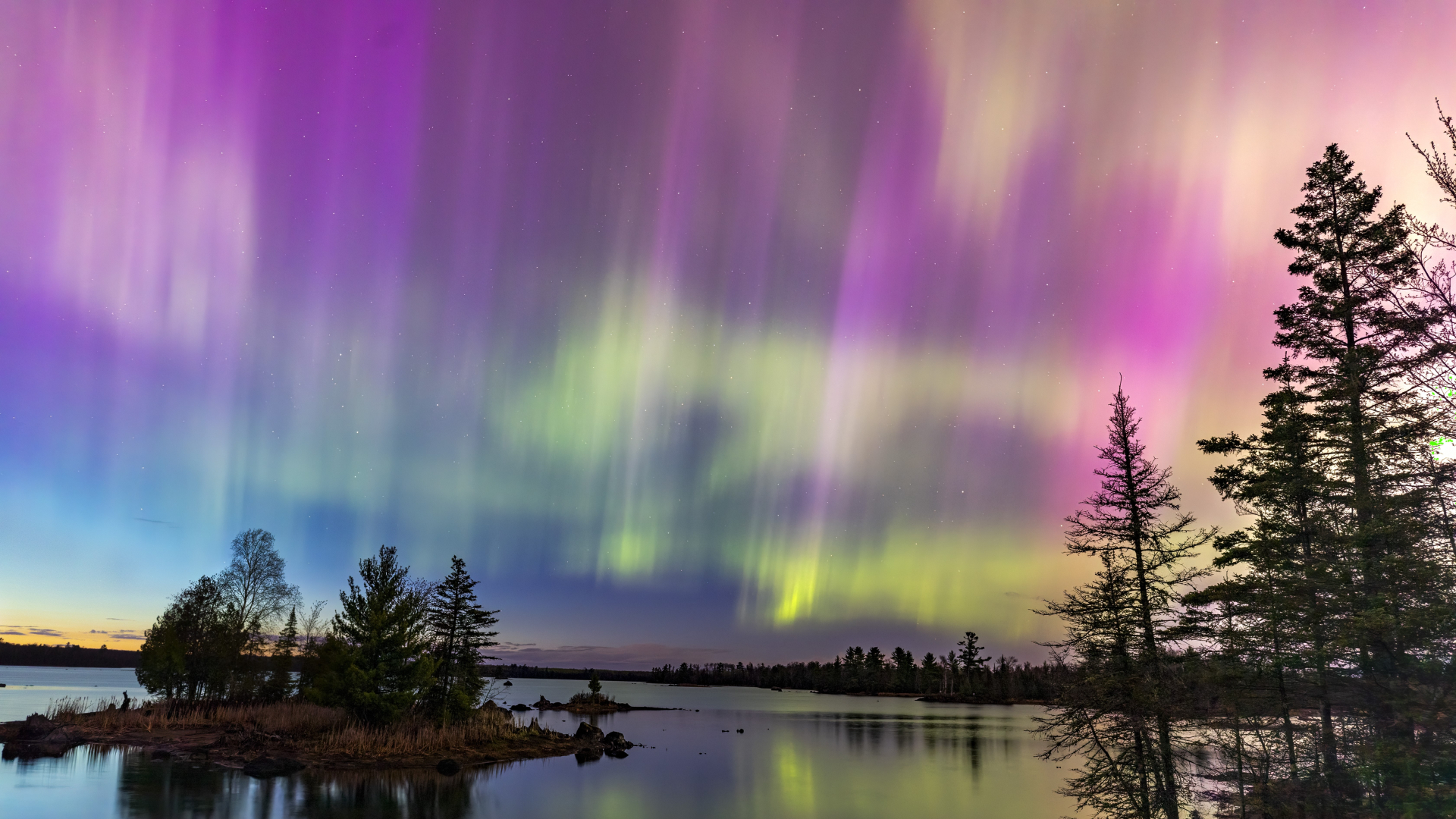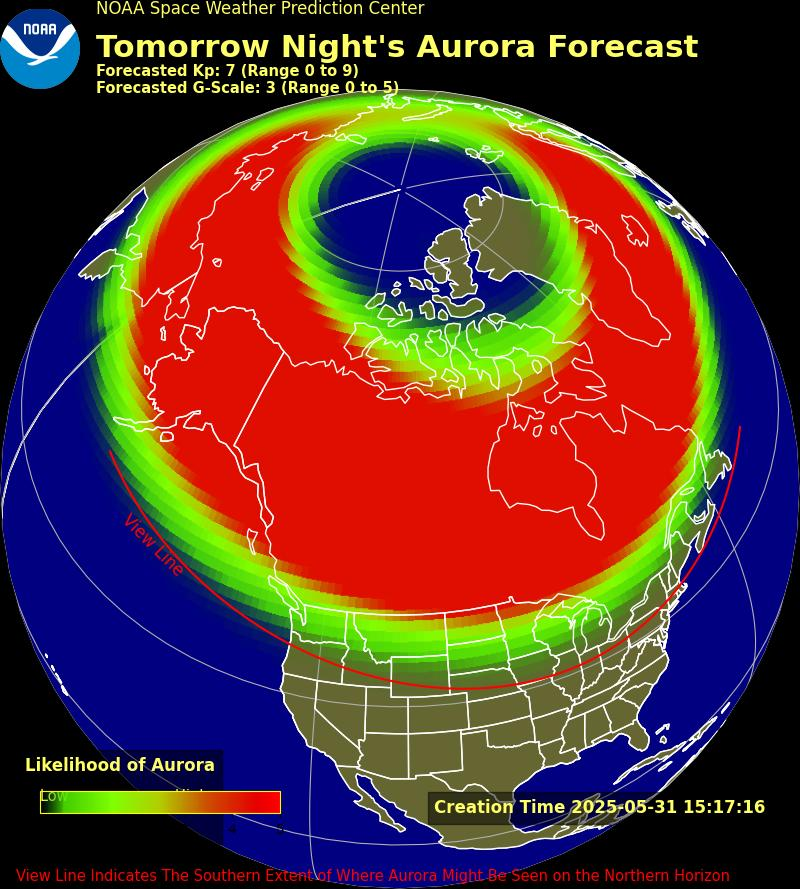
Editor's note: Last night did not disappoint, but we could be in for even more aurora shows tonight as the northern lights may be visible from 23 U.S. States on June 1.
Northern lights could dazzle the skies over 20 U.S. States tonight (May 31) as active geomagnetic conditions may push auroras farther south than usual, according to the National Oceanic and Atmospheric Administration.
Earth is currently being buffeted by high-speed solar wind, which is putting pressure on our planet's magnetic field and fueling the storm — excellent news for anyone hoping to catch a glimpse of the northern lights.
Space weather forecasters are forecasting strong (G3) geomagnetic storm conditions with the possibility of severe (G4) conditions thanks to both elevated solar winds and an Earth-directed coronal mass ejection (CME). Just days ago, a surprise G3 storm on May 28 triggered auroras in 17 U.S. States and even as far south as Italy. That G3 storm had originally been forecast to only reach G1 levels.
The NOAA Space Weather Prediction Center predicts that the Kp index will peak at 4.67 over the weekend. For an up-to-date breakdown of timings, check out NOAA's 3-day forecast. (Kp is a measurement of geomagnetic activity, with an index that ranges from 0 to 9; higher Kp indicates stronger auroral activity.)
Aurora chasers, get your fingers crossed, your cameras charged and your eyes firmly fixed on the skies! You can also keep up with the latest forecasts and geomagnetic storm warnings with our aurora forecast live blog.
Where can I see the northern lights tonight?

Alaska has the highest chance of seeing the northern lights tonight and over the weekend. If G3 or even G4 storm levels are reached, auroras could be visible at high-latitude states, including Michigan and Maine, according to NOAA.
Below, we have listed all 20 states that appear either fully or in part above the possible view line for auroras according to NOAA's Space Weather Prediction Center. They are ordered most likely to least likely based on their proximity to the auroral oval's center and how much of each state is within or near the view line.
But remember, auroras are fickle — sometimes they appear much farther south than predicted, and other times they barely show up at all. Many conditions have to align for the perfect display.
States that could see auroras tonight and over the weekend:
- Alaska
- Montana
- North Dakota
- Minnesota
- Wisconsin
- Michigan
- South Dakota
- Vermont
- New Hampshire
- Maine
- Idaho
- Washington
- Oregon
- New York
- Massachusetts
- Nebraska
- Iowa
- Wyoming
- Illinois
- Connecticut
Northern Hemisphere aurora forecast courtesy of the Met Office
How can I see the northern lights from where I live?
If you find yourself in one of the states forecasted to have a chance of seeing the northern lights tonight or over the weekend, head to a north-facing vantage point as far away from light pollution as possible. But as we approach the summer solstice on June 20/21, the window of darkness for observing northern lights is shrinking; the early morning hours around 1 and 2 a.m. might be the best time to try and see the northern lights.
Interested in tracking space weather and knowing when and where to spot auroras? Download a space weather app that provides forecasts based on your location. One option I use is "My Aurora Forecast & Alerts," available for both iOS and Android. However, any similar app should work well. I also use the "Space Weather Live" app, which is available on iOS and Android, to get a deeper understanding of whether the current space weather conditions are favorable for aurora sightings.







